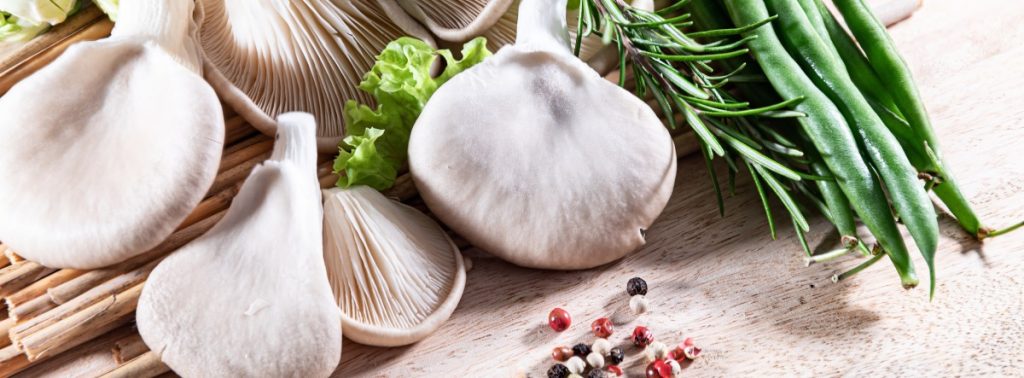Once you’ve grown mushrooms at home and experienced their delicious flavors and health benefits, you may consider starting a mushroom growing business.
The good news is that it’s not exceptionally difficult, and we have excellent resources to help you get started.
But, like any other business, before you begin, it’s advisable to do some research.
First, check to see if there’s a potential market for fresh mushrooms in your area.
Farmers’ markets, grocery stores and health food shops are all options. But local restaurants that focus on using locally sourced ingredients are the ideal client.
We sell our fresh oyster mushrooms to local restaurants and, over time, have learned what works and the best ways to get in the door.
In this article, we provide insider advice and tips on how to sell mushrooms to restaurants based on our experience.
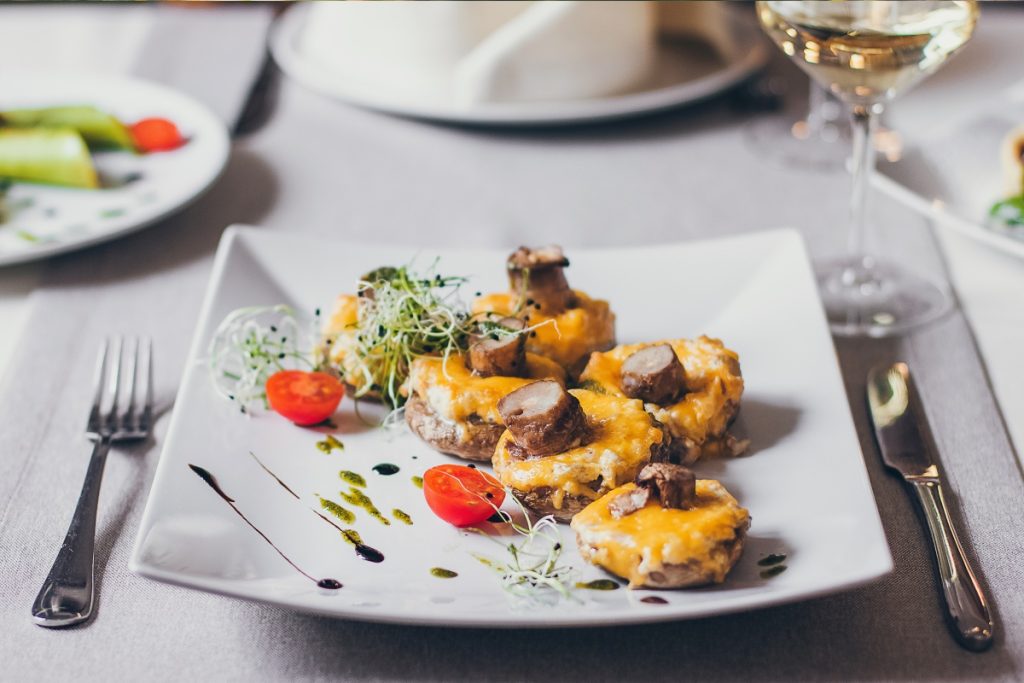
How Do I Sell Mushrooms Locally?
Local farmer’s markets, grocery stores and health food stores are good starting places for beginner mushroom growers.
Selling to restaurants is a little more difficult as they’re often more demanding in terms of quality and consistency and require specific delivery days and times.
Plus, depending on the restaurant, they may only pay you one to two months after delivery.
Here are some options to explore if you’re just getting started selling mushrooms:
Farmer’s Markets
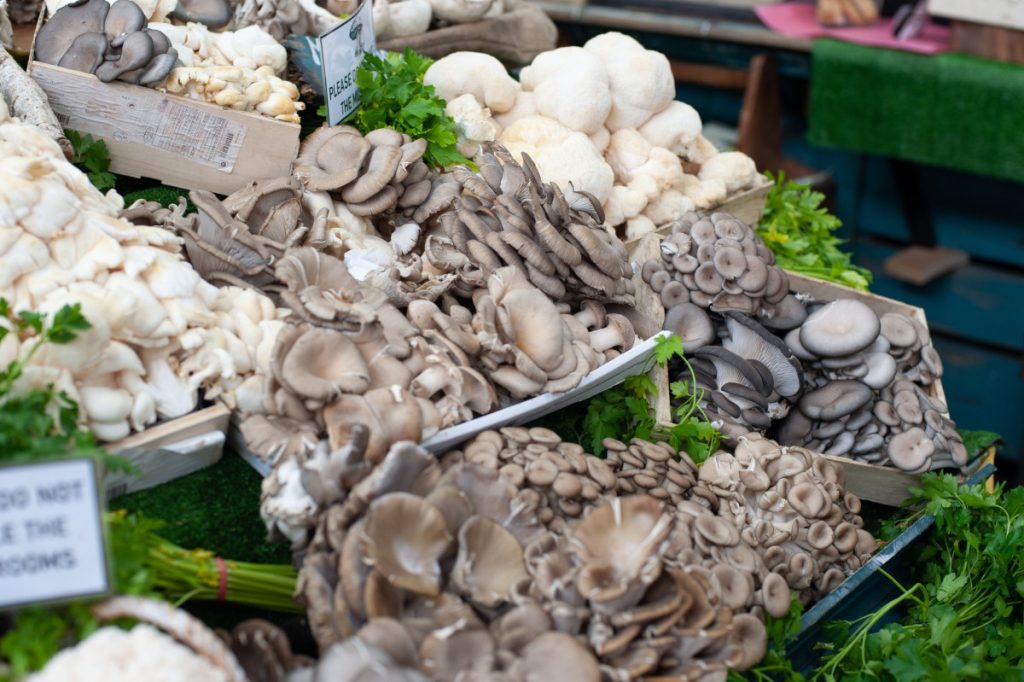
Farmer’s markets are a great way to sell mushrooms as they allow you to connect directly with your customers.
The face-to-face interaction allows you to educate your customers on the benefits and uses of mushrooms.
You’ll need to know everything about your mushrooms and how to use them.
So you can provide recipes, make recommendations on the best way to cook mushrooms and suggest other ingredients that complement them.
If you provide high-quality mushrooms and helpful advice, you can convert mushroom skeptics to mushroom lovers and quickly build up a base of weekly repeat customers.
Farmer’s markets will give you higher profit margins than wholesale sales to restaurants.
But, they don’t provide the same volumes or consistency as restaurants.
Grocery Stores
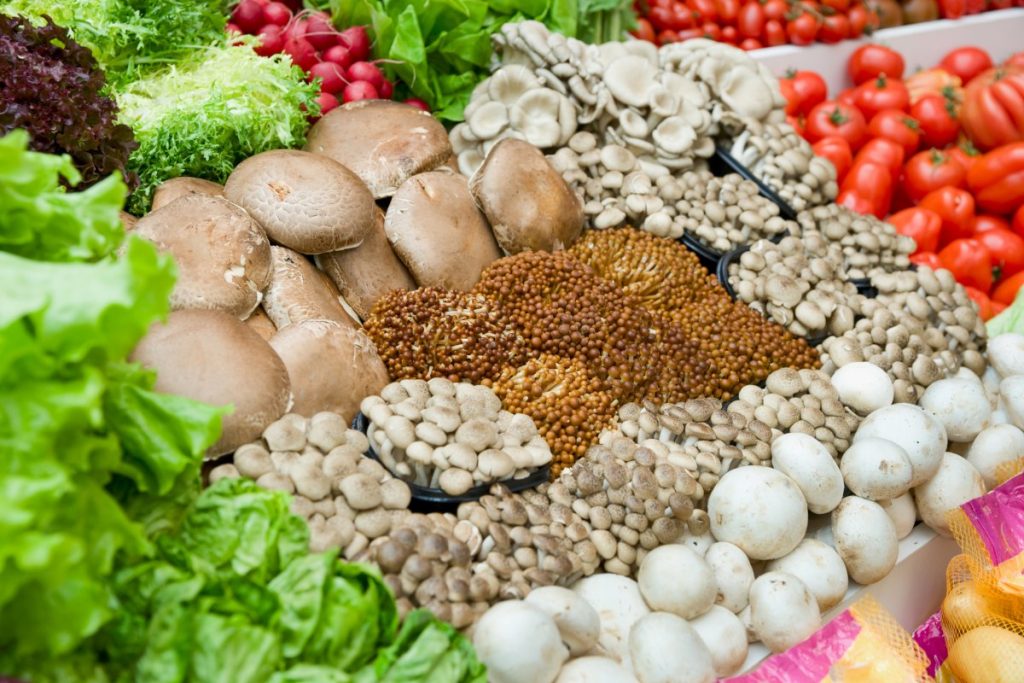
Many people go to grocery stores to find mushrooms.
Many grocery stores only stock button, cremini or portabella mushrooms, but some cater to more sophisticated markets.
Target high-end or upscale grocery stores that carry exotic produce.
They often cater to customers interested in buying fresh gourmet mushrooms.
If you’re local and can provide fresher mushrooms than another distributor at a reasonable price, you could do well.
Some gourmet mushrooms, including oyster mushrooms, have a relatively short shelf life.
This factor provides an advantage for local mushroom growers who can harvest and deliver on the same day.
Health Food Stores
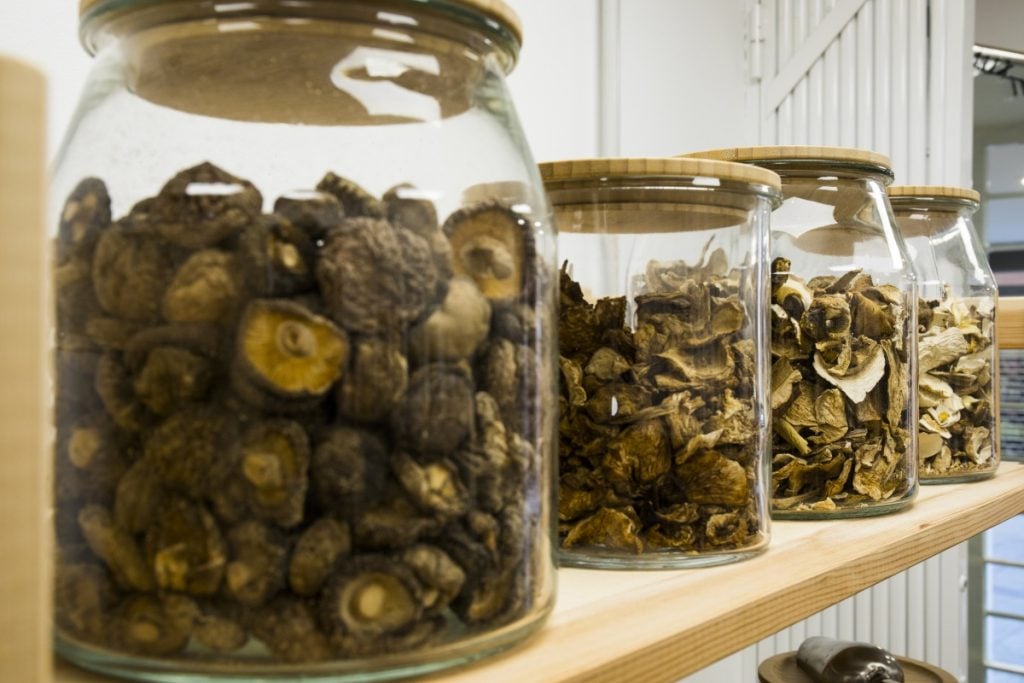
Mushrooms have numerous health benefits, and health food stores are good outlets for fresh or dried mushrooms and mushroom powder.
Dry any mushrooms whose appearance does not meet your quality standards. You can package these and sell them to health stores.
Dried mushrooms do have culinary uses. But when selling to health stores, highlight their health benefits when used as an ingredient for making medicinal tinctures.
What Do I Need to Sell Mushrooms to Restaurants?
To sell mushrooms to restaurants, you need to have experience growing mushrooms and a mushroom growing setup that produces high-quality harvests consistently.
Before you begin selling mushrooms to restaurants, make sure you can produce enough to meet any orders you get.
Restaurants want consistent deliveries of quality fresh produce more than anything else. You’ll need to meet all your commitments to them and provide consistent quality and excellent customer service.
The best way to begin selling mushrooms to restaurants is to start small. A low-tech mushroom farm is all that you need.
Start with a single restaurant and make sure that you can comfortably meet their needs with your current growing setup.
If things are going well, add another restaurant and make sure that you can deliver on your commitments and cater to the demands of two customers.
By this stage, you should have a good idea of your production capacity and how much further you can scale your business.
By starting small, you give yourself time to put systems in place and streamline them to increase your production in the future.
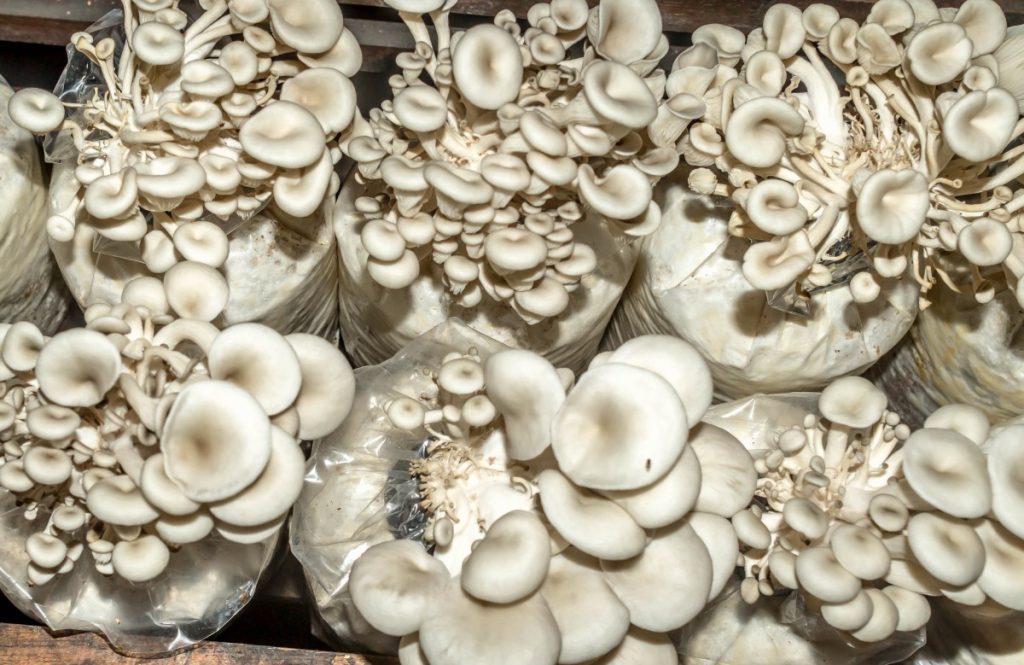
How To Sell Mushrooms to Restaurants
When you’re confident you can produce regular high-quality harvests, use the steps below to start selling mushrooms to restaurants:
Step 1: Research
Start by checking your local area for popular high-end restaurants and find out if they are sourcing fresh produce locally.
Focus on the ones that will have the ability to pay slightly more for a premium product and those who have customers who value local suppliers and top-quality produce.
How are they getting their fresh produce? Some may source fresh produce from farmers’ markets, making your local farmers’ market a great place to meet and form business relationships.
But waiting to meet chefs at the farmers market is not the best way to start selling mushrooms to restaurants.
You’re going to need to call on them directly.
Now that you have a list of potential restaurants. Try to find out who the head chef is and when is a good time to visit.
Step 2: Provide Samples
Now it’s time to do some legwork and go to the restaurants.
Take samples of your mushrooms with you. Make sure they’re harvested the same day, preferably within a few hours of meeting the chef.
What time you call on restaurants is extremely important as you want to get there during the quieter times when the chef is not busy.
Early mornings or between 2 and 4 pm are often good times as they’re quieter, and chefs can take a moment to chat face to face.
When you get to the restaurant, ask politely for the chef and remember to be friendly and patient. Understand that chefs are very busy.
Introduce yourself and ask if they’re interested in fresh, local mushrooms. Provide a decent-sized sample for the chef to test along with some recipe ideas and no pressure to buy.
Emphasize the freshness and the fact you’re a local supplier.
Compare the freshness of your mushrooms to the quality they would get from a wholesaler whose mushrooms are already four to five days past the harvest date.
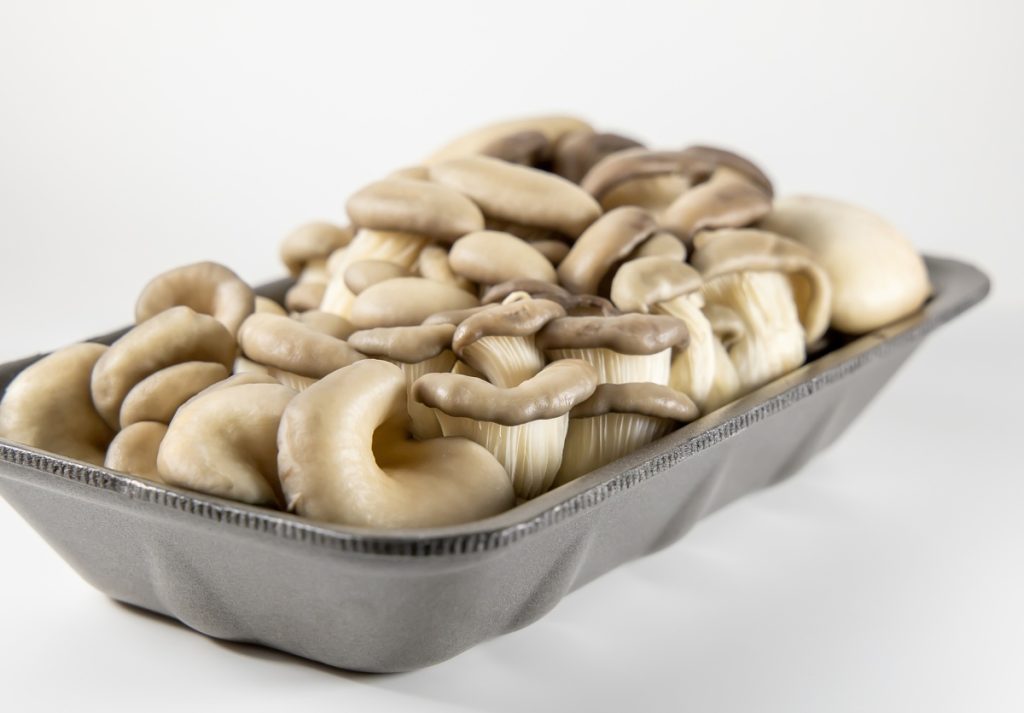
Step 3: Follow Up
Follow up a few days later to ask their thoughts and listen carefully to any input they give you.
Even if they don’t commit to buying from you straight away, the input they provide will be helpful when approaching other chefs.
Ask what their needs are. If you have a chef who wants a variety you don’t currently grow, ask how many they may need and how often.
Their request could be a viable new business opportunity for you if it’s one of the easier types of mushrooms to grow.
If the chef enjoyed your mushrooms and wants to include them in the menu, it’s time to get a commitment from them.
Step 4: Get a Commitment
Try to get the chef to commit to a regular weekly order with a minimum quantity that you’re confident you can deliver.
If they say no, find out why and see if there is anything you can do to address their concerns, or perhaps offer a lower price, to begin with.
Once you have one or two restaurants buying from you regularly, it’s easier to get more.
You can say, “XYZ restaurants are buying from me” to build your credibility. This may entice other restaurants to buy from you to keep up with their competitors.
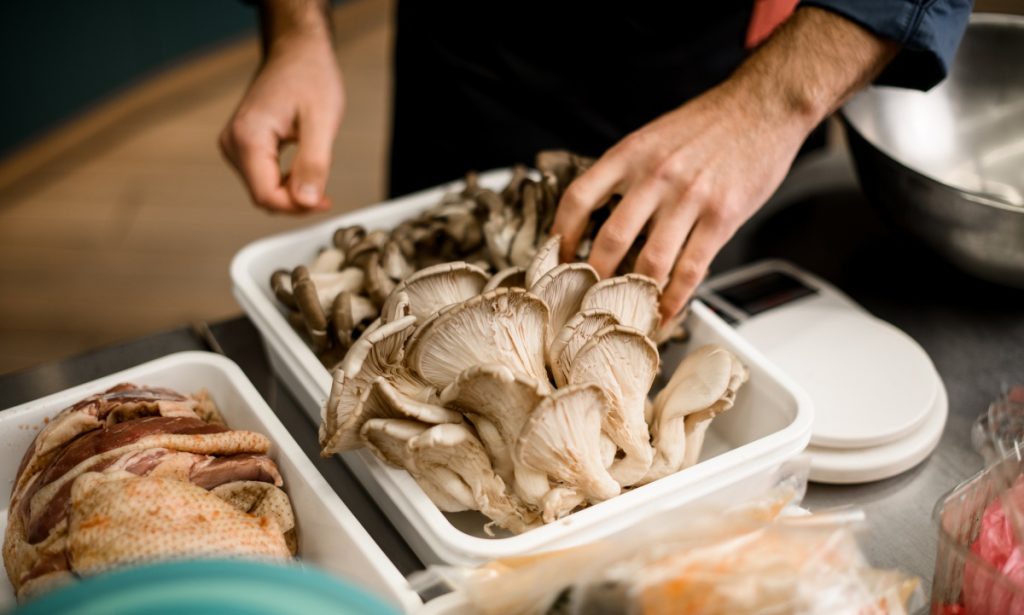
5 Tips to Selling Mushrooms to Restaurants Successfully
Here are some tips to help you build relationships and successfully sell mushrooms to restaurants:
- Be time conscious: Ask the restaurant owner, chef or buyer which day and time are best for meetings and set up a schedule for weekly order deliveries.
- Provide a consistent product: Always deliver fresh mushrooms harvested the same day if possible, but never more than two days old. Aim to consistently deliver the same size and quality of mushrooms as this makes the chef’s job easy, and they will continue to buy from you.
- Build multiple relationships: Having a relationship with managers at the restaurant is important even though they don’t make purchasing decisions. If chefs or buyers leave, they can keep you updated and introduce you to the new decision-maker.
- Be professional: This applies to everything that you do but especially invoicing. Nothing irritates a customer more than having to sort out invoicing problems. Keep excellent records and invoice every delivery consistently. Get the person who receives the mushrooms to sign a delivery note to prevent future queries.
- Be proactive: If your delivery is going to be short or late for any reason, let the restaurant know as early as possible. Doing this gives them time to make alternative plans or even substitutions, if necessary.
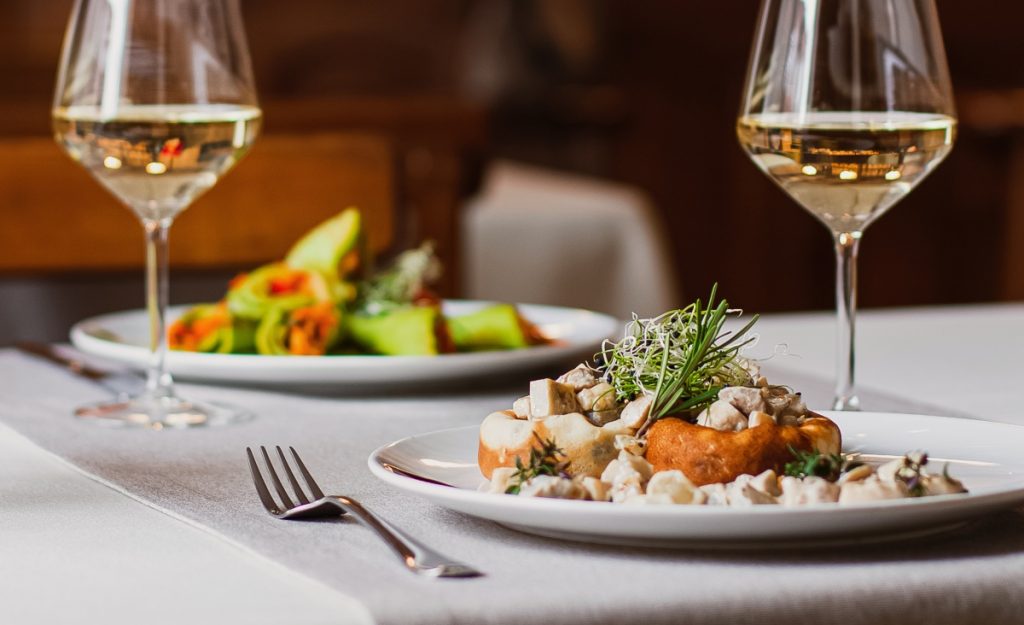
Is it Profitable to Sell Mushrooms?
Cultivating and selling mushrooms can be very profitable. On our small mushroom farm, we’ve been able to generate more than $200,000 (approximately £150,000) in sales per year.
In the UK where we are, we sell to restaurants at $13 to 16 (£10 to 12) per kg of oyster mushrooms, but we have heard of restaurants in London paying $26 to 31 (£20 to 24) per kg for fresh, locally grown oyster mushrooms.
Prices can vary a lot from country to country or city to city. Try to find out how much restaurants in your area pay to buy from a wholesaler.
Our mushroom growing business plan will help you decide if a mushroom growing business is the right business for you.
What Certifications Do You Need to Sell Mushrooms?
The certifications needed to sell mushrooms vary substantially depending on the country, state or area.
Your country or state may have rules about the farming and distribution of foods, and you could need a permit or business license of some sort.
The size of your mushroom farm and who you plan on selling to will also dictate what certification you need.
To find out more about the regulations in your area, ask other local food growers or enquire with your local authority.
Usually, it is not too difficult to start selling mushrooms as many countries consider them a low-risk food safety item.
Can I Legally Sell Mushrooms?
Selling cultivated mushrooms is generally legal. But depending on your location, you may require certification.
When it comes to selling foraged wild mushrooms, the rules are often stricter due to the danger of accidentally picking poisonous mushrooms.
To sell foraged mushrooms, you often need permits and, in some countries, must complete a wild mushroom identification course.
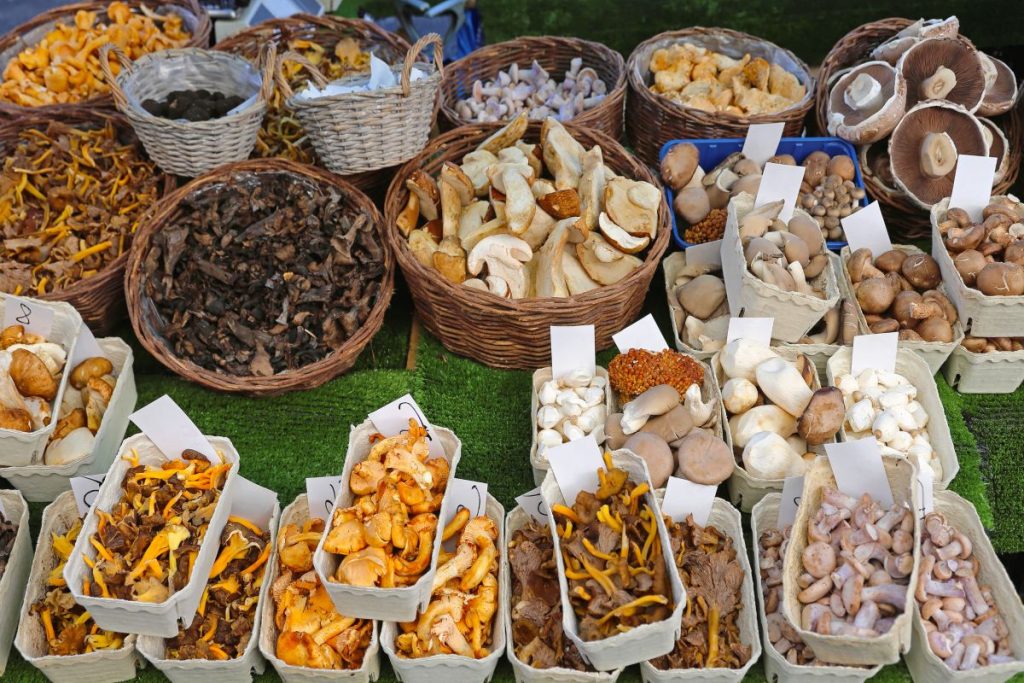
Final Thoughts
Growing and selling fresh mushrooms can be very profitable. Depending on your location, you may have several options available.
Restaurants make ideal clients for smaller mushroom farmers as they often commit to regular orders, providing stable income.
But, before you can sell mushrooms to restaurants, you need the capacity to produce the quality and quantity required.
Our Low Tech Mushroom Farming Course is the perfect resource if you’re looking to start your own mushroom business.
